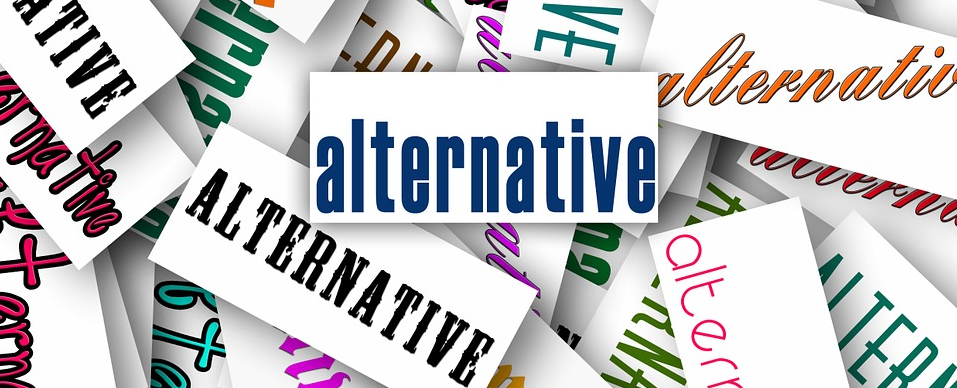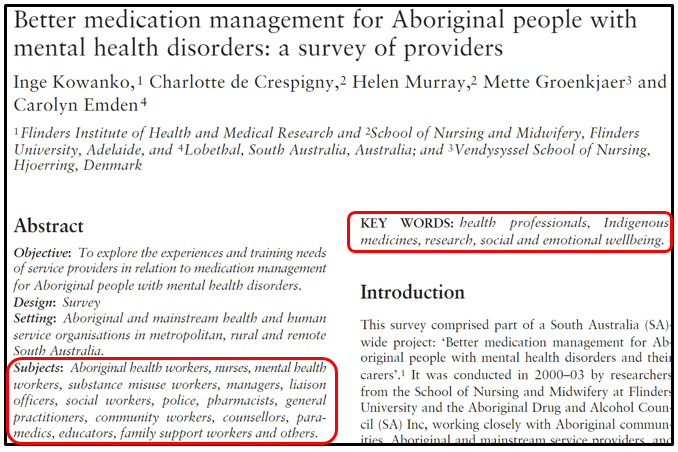Communication, Culture and Indigenous Perspectives in Business
Identify the keywords
When you perform a search, your results are tied to the keywords that you use. It is therefore important that you use the right words in your search so that you find the right information. Look at your topic or research question and identify the key concepts related to your topic.
Search tip! When identifying keywords/concepts, ignore any directive verbs in your question like ‘compare’, ‘analyse’ or ‘define’. These are instructions for how you should write your assignment and should not form the basis of your search.
Start your search
Using the keywords you’ve identified, try a search in the Library Catalogue or appropriate databases. Keep in mind that you should restrict your search to the type of material you want to find. You’ll find options to Refine where you can specify if you want to find journal articles, newspaper articles and other types of sources.
See the links to the different assessments (available in the guide menu above) for further tips on where and how to search.
Identify alternative keywords
Authors often use different terms or words to describe the same concepts. It is important that you search using a range of alternative terms related to the main concepts from your topic as this can help you find relevant resources. You can find alternative terms in a number of ways:
For certain words, using a thesaurus can be a powerful way of identifying related terms on which to search. Consider the keyword “Manager”. Using an online thesaurus we are given a number of suggestions:
- Administrator
- Executive
- Director
Talking over your keywords with friends, family or colleagues can also be a great way to identify alternative terms that cover your concepts.
A thesaurus might not work well for more technical or subject specific language so it is best to look at tools such as Wikipedia or general Internet searching for an overview of the concept in an attempt to identify alternative keywords. For example, if you were interested in finding alternative terms for the concept of “Indigenous Australians”, you could look it up on Wikipedia and you will find the following suggestions:
- Aboriginal and Torres Strait Islander peoples
- Indigenous Australians
- First Nations
- First Peoples of Australia
IMPORTANT NOTE: For this assignment, you have been instructed not to use Wikipedia as a reference. You can use it to identify alternative terms for searching purposes, but you should not be taking information from Wikipedia and using it in your assignment!
Using the keywords from your question, you may find a few relevant articles within the library catalogue or databases. If you do, you can use these articles to identify the keywords or subject headings which have been applied. Most articles will list the suggestions under headings like Keywords or Subjects (see the journal article below).
Connect your search terms with AND and OR
When searching in the library catalogue and databases, you can combine your keywords using AND and OR.
-
AND is used to combine different search concepts. It narrows your search, instructing the catalogue or database to find only items that contain both of your terms. For example, sustainable development goals AND business ethics will only return records containing both the terms.
-
OR is used to combine similar keywords. It broadens your search, instructing the catalogue or database to find items that contain either of your terms. For example, corporate social responsibility OR social performance will locate all records containing either of these terms.
How do I know if a source is academic?
The following points can help you decide if a source is academic:
- Authors - are the author names given? Are they affiliated with an educational or research institution or government agency? Do they provide their educational qualifications?
- Audience - is it written for an academic audience (scholars, researchers)? Does it use specialised or discipline specific language?
- Purpose - why has the source been written? Is it to report on or summarise research on a topic?
- References - does it provide references to support the research?


